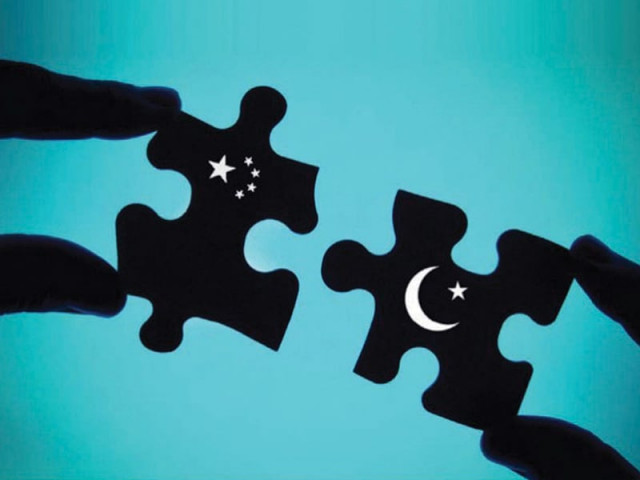Analysis: Beyond the Himalayan hyperbole
We have few friends in the region, and simply cannot afford to let the Chinese partnership sour.

All the talk of an economic corridor will remain just that unless we are able to secure the route that corridor must take; a route that currently stretches across terrain plagued by insurgency and chaos. CREATIVE COMMONS
For all the sound, fury and Hollywood hype, the War on Terror was not a true strategic shift for the United States. I say ‘was’ because, for all real intents and purposes, the war is over for the United States.
Yes, the drones will continue to fly, terrorists will be monitored, the militarisation and intrusiveness of America’s domestic security services will increase and the odd lone wolf attack will be carried out. But on a strategic level, the US is now out of the fight. It’s another matter entirely that the length and breadth of the Muslim world will be faced with a metastasised al Qaeda and its allies for some time to come, but that’s not the topic of this piece. So long as the Middle-East remains balkanised and fragmented, a process aided by the Iraq invasion’s aftermath and now the Syrian civil war, the possibility of a regional hegemon arising remains a distant one. This coupled with a projected decrease in the US’ reliance on Mideast energy, means that this area will not be a prime strategic concern for the US in years to come. Al Qaeda essentially did not achieve its strategic goal of fomenting rebellion in the Muslim world, although one must admit that the war it inspired did succeed in delaying what is the true strategic realignment of the US: The Asian Pivot.
Starting from South Korea and Japan, and stretching all the way down to Vietnam, Myanmar and finally India, an attempt is being made to create a ‘shield’ of nations that can, if push comes to shove, contain China both diplomatically and physically. As a counter, China has its string of pearls, a series of ‘friendly’ naval bases – meant primarily for commercial purposes – that stretch around the Indian Ocean and culminate at Gwadar. The other importance of Gwadar to the Chinese is that it will be, ultimately, the jumping-off point for the economic corridor that Chinese PM Keqiang spoke of during his visit. This, along with Pakistan’s utility as a hedge against India and possibly the US, is the core of the strategic partnership. And make no mistake, it is a strategic partnership in the true sense of the term and is based on cold, hard geopolitics. To analyse it purely, or even primarily, through an economic lens is myopic and disregards the way the Chinese tend to do business. This is not a sugar-daddy in the mold of the US, which will keep the dollar spigot open. For Pakistan on the other hand, it is a relation of necessity. We have few friends in the region, and simply cannot afford to let the Chinese partnership sour, especially when we consider that the long-term strategic interests of Pakistan and the US are fundamentally divergent.
It is true, of course, that out of this necessity we have struck unequal bargains with the Chinese, but fairness is not a guiding principle in foreign affairs. For all the Himalayan hyperbole – which is meant largely for public consumption – It is not incumbent for the Chinese to look out for Pakistan’s best interests. That is, or should be, our job. But it is also another home truth that the junior partner usually ends up getting the short end of the stick, especially when that partner has nowhere else to go and is negotiating from a position of weakness, if not desperation. While the general public can view it as an ‘all-weather friendship’, one hopes that our strategic planners are looking at this relationship with their eyes wide open and with their rose-tinted glasses off.
A fundamental miscalculation made in the Pakistan-US relation was an assumption that Pakistan was permanently indispensible to the US. This was never the case, and at best our value to the US was situational and temporary. In the future, this value will degrade even further, making the China nexus even more important. Here, at least, geography itself dictates that Pakistan’s strategic importance will not fall below a certain minimum. Still, it is important to realise that Pakistan is only one aspect, and by no means the most important, of China’s game plan.
So how do we increase our strategic value to China, keeping in view that while China may be the cornerstone of our grand strategy, we are a sideshow in theirs? The first answer is also the most obvious: by putting our house in order. All the talk of an economic corridor will remain just that unless we are able to secure the route that corridor must take; a route that currently stretches across terrain plagued by insurgency and chaos. Achieving this will not only allow Gwadar to reach its potential but also create the kind of credible state that can, finally, negotiate from a position of relative strength.
Published in The Express Tribune, May 24th, 2013.



















COMMENTS
Comments are moderated and generally will be posted if they are on-topic and not abusive.
For more information, please see our Comments FAQ